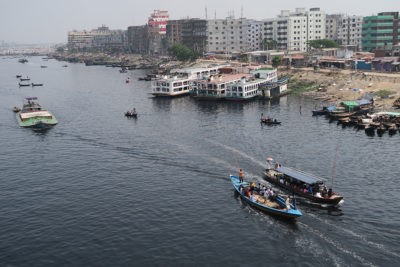Joaquim Magalhães de Castro
In Dhaka, Estêvão Cacela and João Cabral lived a historical event of tragic proportions and it was due to the proverbial disagreement among the Portuguese, who so often left perplexed the peoples with whom they came in contact. As a result of an accounting between an old Portuguese soldier – “a very old Portuguese who grew old in Dhaka,” as Cacela describes it – and a Christian (we do not know if he was Portuguese as well), and later an attempt of appeasement by a reputed captain, a certain Jorge de Sousa – “… on both sides, all were Christian soldiers and, as captain of all, Jorge de Souza disarmed to remove them …” – served as justification for the local praetorian guard, the “resputos,” as Cacela calls them, would carry out their reprisals, taking advantage to kill the undesirable foreigners, to plunder and destroy their properties. In an instant the Portuguese quarter of Dhaka was engulfed in flames, and the priests themselves feared for life, hidden in an abandoned house.
“In the midst of the greatest fury of the local authorities, which did not forgive any Christians they encountered, who did not injure or kill, setting fire to all the houses of soldiers that were in that neighborhood, living and being now in one of those places, where formerly a soldier lived, there the Lord defended us without the fire coming to us nor the Gentile soldiers knowing about us, when we heard the cry and and tears of the people in the fires and robberies that they suffered.”
Jorge de Sousa miraculously survived the incident, and with it the copy of the authorization for the priests in his possession, a providential fact for the future success of the mission since the original would be lost in the gigantic fire. This official document included the authorization to construct and assemble a vessel. The priests saw the divine hand in their wise decision to leave the house where they resided, because this was the first one to go up in flames and from it was saved a Portuguese that had the art and ingenuity to disguise himself, “dressing up a cabaia and a cap and paying very well to a neighboring Moor who spared him”.
In a subtle criticism of the disagreements, jealousies, and rivalries among the Portuguese, Cacela writes the following comment: “The causes and principles of this success are well known, what touches the guilt of the evils that have been executed here, I leave by excuse even those who are so publicly guilty.”


 Follow
Follow


